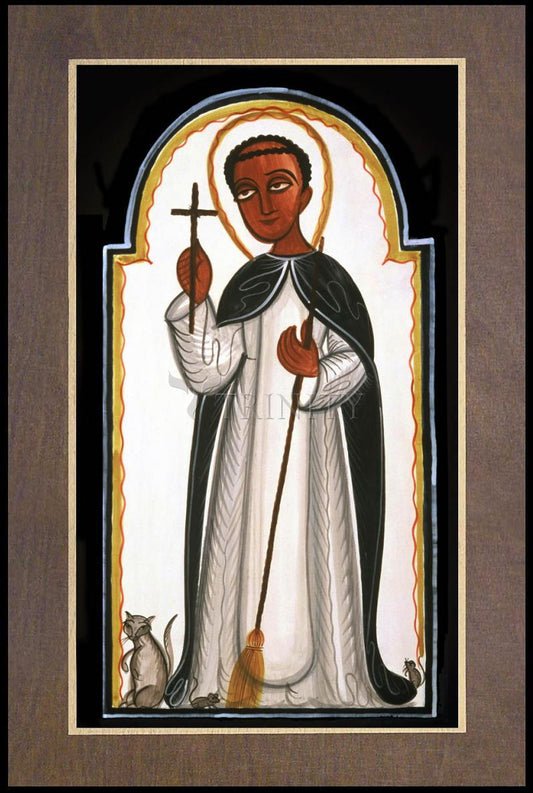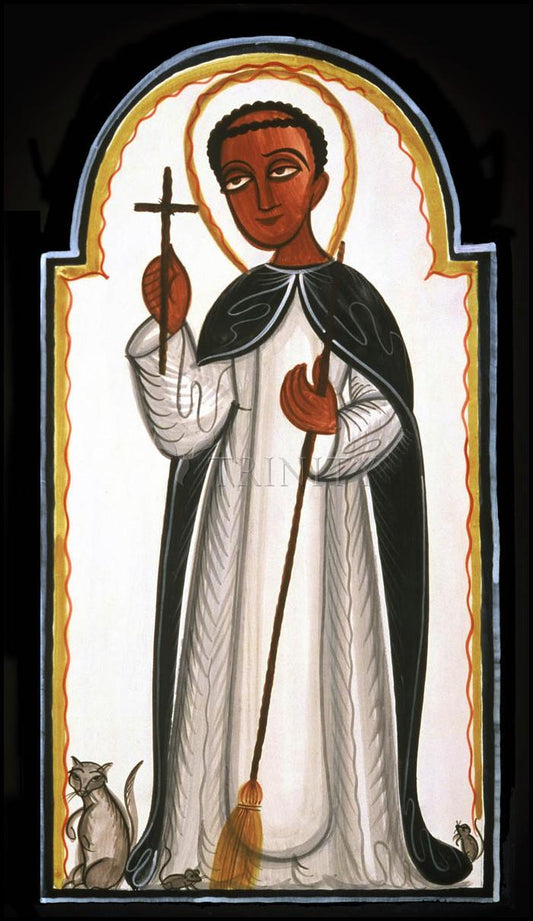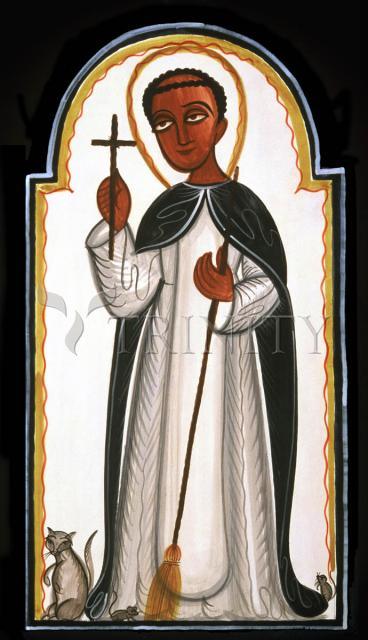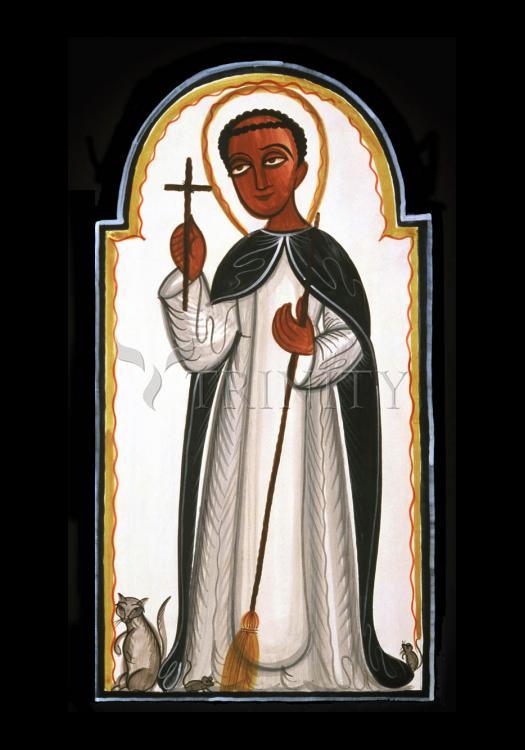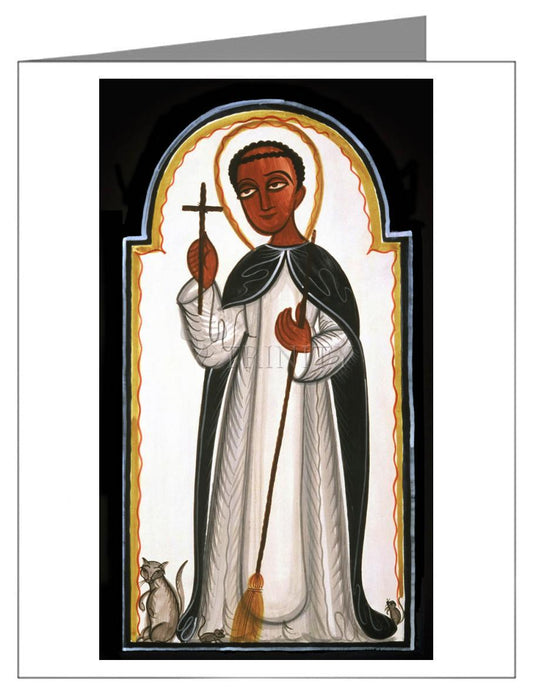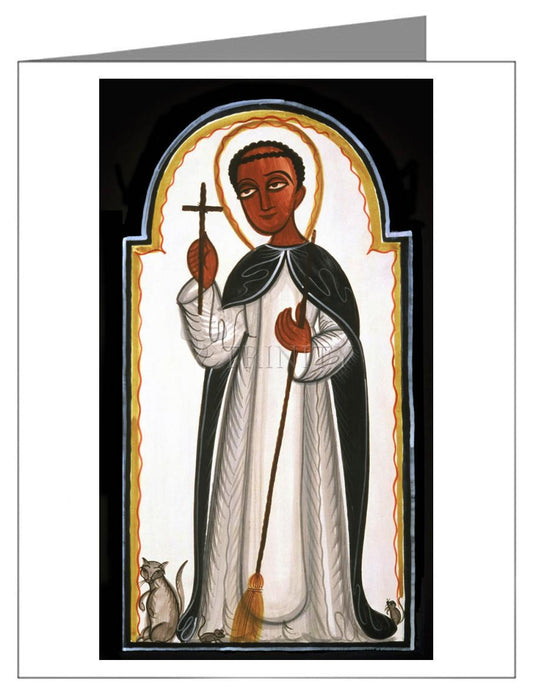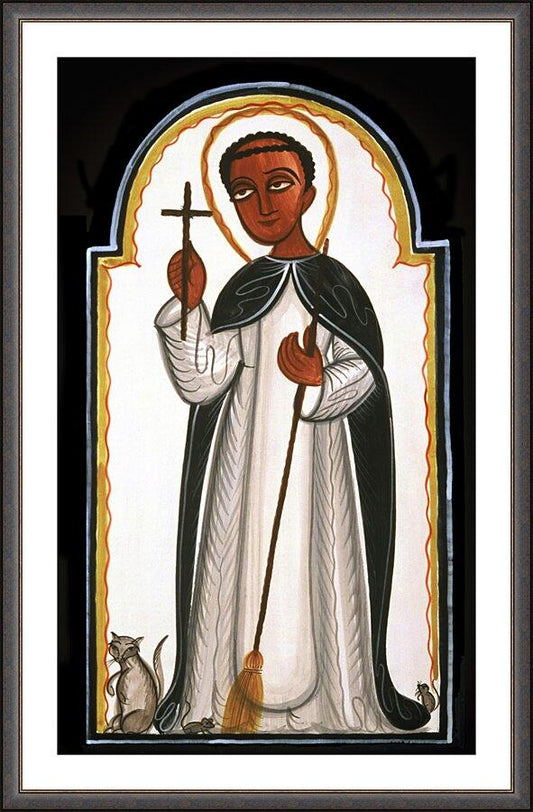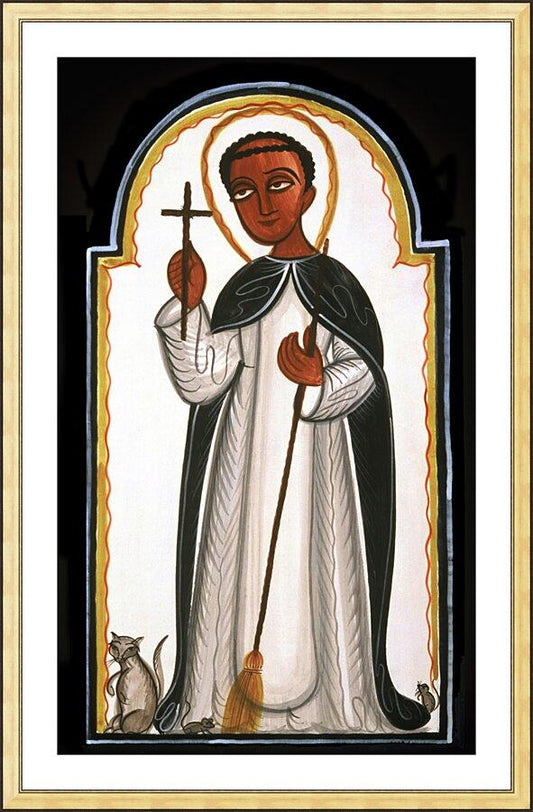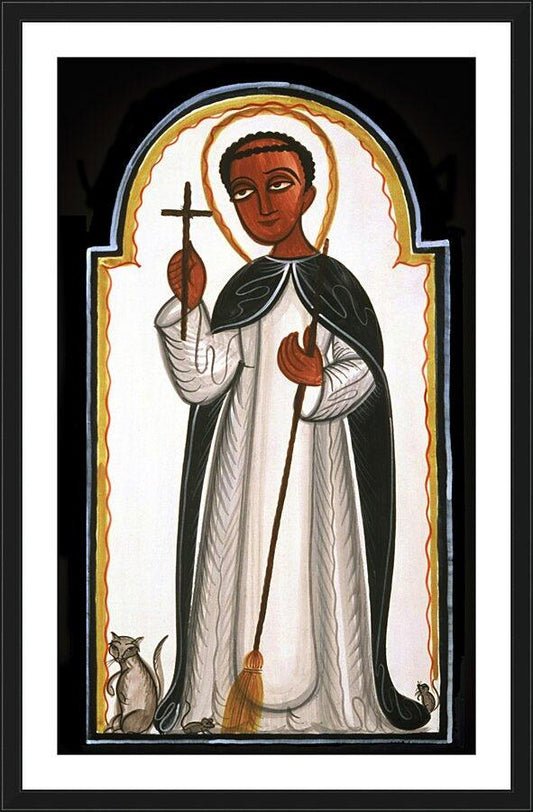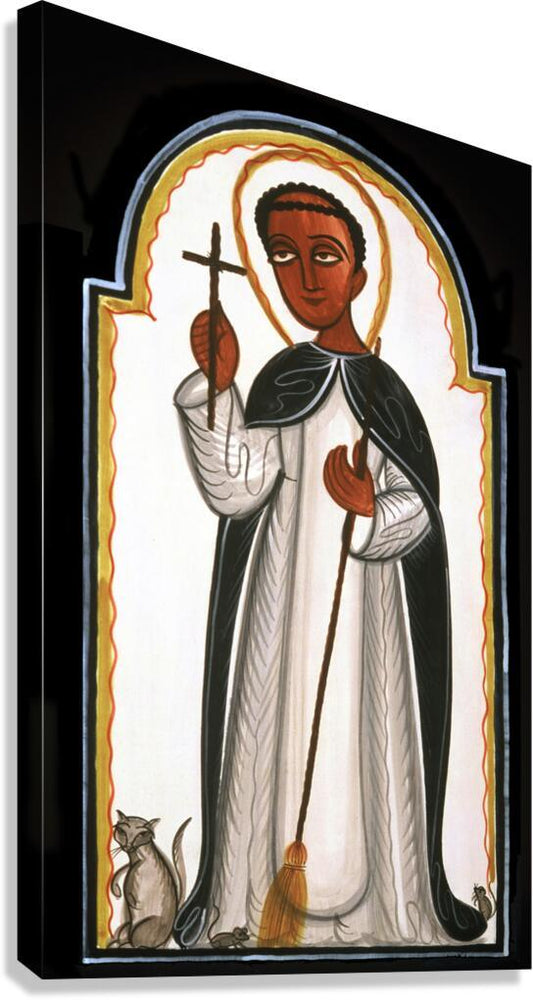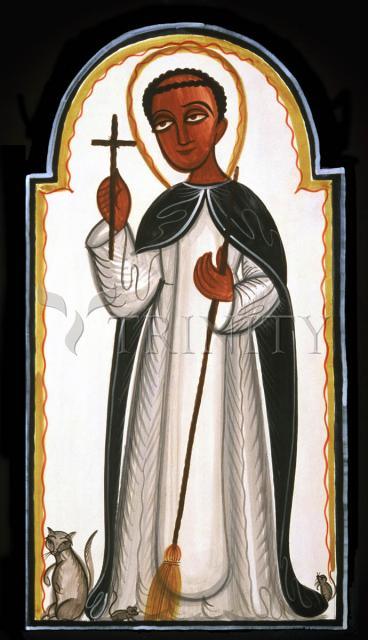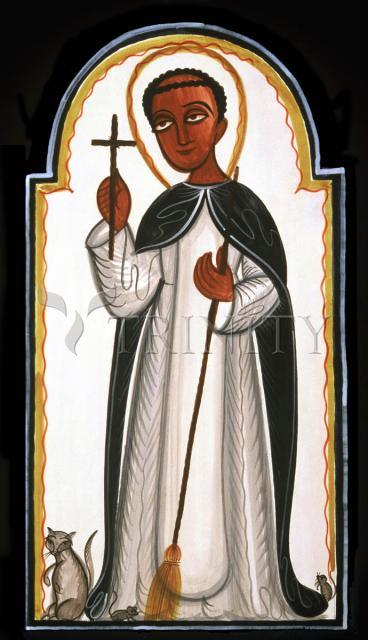Martin was the illegitimate son of a Spanish nobleman and a young freed black slave. He grew up in poverty. Martin spent part of his youth with a surgeon-barber from whom he learned some medicine and care of the sick.
At age 11 he became a servant in the Dominican priory. He was promoted to almoner. He begged more than $2,000 a week from the rich to support the poor and sick of Lima. Martin was placed in charge of the Dominican's infirmary; known for his tender care of the sick and for his spectacular cures. His superiors dropped the stipulation that "no black person may be received to the holy habit or profession of our order" and Martin took vows as a Dominican brother.
Martin established an orphanage and children's hospital for the poor children of the slums. He set up a shelter for the stray cats and dogs and nursed them back to health. He lived in self-imposed austerity, never ate meat, fasted continuously, and spent much time in prayer and meditation. Martin had great devotion to the Eucharist and was a friend of St. John de Massias.
He was venerated from the day of his death. Many miraculous cures, including raising the dead are attributed to Brother Martin. Martin was the first black American saint.
Born: December 9, 1579 at Lima, Peru
Died: 1639 of fever
Beatified: 1873
Canonized: May 16, 1962 by Saint John XXIII
Also known as: Martin of Charity; the St. of the Broom (for his devotion to his work, no matter how menial)
Reading:
The example of Martin's life is ample evidence that we can strive for holiness and salvation as Christ Jesus has shown us: first, by loving God "with all your heart, with all your soul, and with all your mind; and second, by loving your neighbor as yourself."
When Martin had come to realize that Christ Jesus "suffered for us and that he carried our sins on his body to the cross, he would meditate with remarkable ardor and affection about Christ on the cross. He had an exceptional love for the great sacrament of the Eucharist and often spent long hours in prayer before the blessed sacrament. His desire was to receive the sacrament in communion as often as he could.
St. Martin, always obedient and inspired by his divine teacher, dealt with his brothers and with that profound love which comes from pure faith and humility of spirit. He loved men and because he honestly looked on them as God's children and as his own brothers and sisters. Such was his humility that he loved them even more than himself, and considered them to be better and more righteous than he was.
He excused the faults of others. He forgave the bitterest injuries, convinced that he deserved much severer punishments on account of his own sins. He tried with all his might to redeem the guilty; lovingly he comforted the sick; he provided food, clothing and medicine for the poor; he helped, as best he could, farm laborers and Negroes, as well as mulattoes, who were looked upon at that time as akin to slaves: thus he deserved to be called by the name the people gave him: 'Martin of Charity.'
It is remarkable how even today his influence can still move us toward the things of heaven. Sad to say, not all of us understand these spiritual values as well as we should, not do we give them a proper place in our lives. Many of us, in fact, strongly attracted by sin, may look upon these values as of little moment, even something of a nuisance, or we ignore them altogether. It is deeply rewarding for men striving for salvation to follow in Christ's footsteps and to obey God's commandments. If only everyone could learn this lesson from the example that Martin gave us.
"Excerpts from a homily by Saint John XIII given at the Canonization of Saint Martin de Porres



